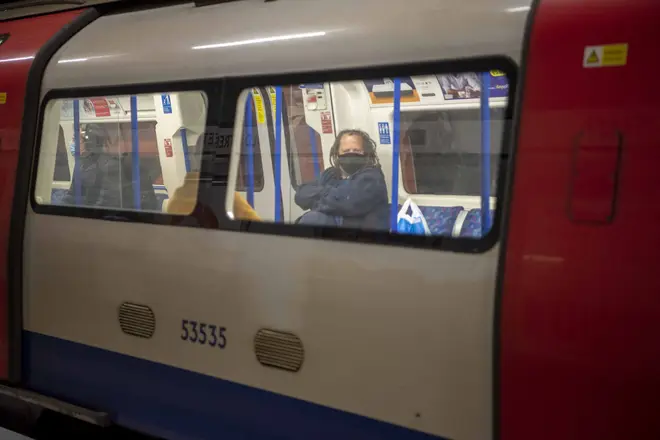
Matthew Wright 7am - 10am
11 May 2020, 20:33

Transport for London has said that coordinating safe travel during the coronavirus pandemic will be a far greater challenge than the 2012 Olympic Games.
The organisation said there is a need to reduce pre-Covid demand on buses and Tubes by over 85 per cent.
Other guidelines set out by TfL include...
- Continuing to work from home wherever possible
- Those who need to travel should try to walk or cycle and avoid public transport wherever possible
- "Shop local" where possible to relieve pressure on public transport
- Employers are urged to do everything they can to help staff avoid the busiest travel times
- Face coverings should be worn on public transport
- Rigorous cleaning regimes, hand sanitiser and operational changes at stations
- Social distancing to be maintained on all forms of transport
Transport for London also reminded passengers that travel will operate in a "very different way" than it did before the pandemic.

How to make your own face mask
It comes as the government announced that public transport services will be increased "as quickly as possible" as part of England's recovery from the coronavirus pandemic, according to a Government document.
The "recovery strategy" published on Monday sets out measures to cope with growing demand for travel "as more people return to work".
It says: "This is why the Government is working with public transport providers to bring services back towards pre-Covid-19 levels as quickly as possible."
Public transport services have been decimated by a collapse in demand and staff shortages.
Passengers are still being urged not to use trains and buses.
The strategy states: "When travelling everybody (including critical workers) should continue to avoid public transport wherever possible.
"If they can, people should instead choose to cycle, walk or drive, to minimise the number of people with whom they come into close contact."
The document goes on to state that social distancing guidance on public transport "must be followed rigorously".
Transport operators "should follow appropriate guidance" which will be published this week to ensure their services are "Covid-19 secure".
A separate section of the briefing states that the Government is now "advising" that people should wear face coverings on public transport.
It reads: "The Government is now advising that people should aim to wear a face-covering in enclosed spaces where social distancing is not always possible and they come into contact with others that they do not normally meet, for example on public transport or in some shops."
The document states that these changes to policy will apply from Wednesday in England, but the guidance should be considered alongside specific requirements for Scotland, Wales and Northern Ireland.

Sadiq Khan: These rules are not optional. They are to stop people dying.
On Sunday, Mayor of London Sadiq Khan pleaded with Londoners to keep abiding by the coronavirus lockdown rules after Boris Johnson delivered an update to the nation.
Mr Khan told Londoners: I want to be as clear as possible with Londoners - social distancing measures are still in place. Lockdown hasn't been lifted and we all still need to play our part in stopping the spread of Covid-19.
"You must still stay at home as much as possible and keep a safe two-metre distance from other people at all times when you are out. Everyone must continue to work from home if they possibly can.
"You must not use public transport for any unnecessary journeys. If you really have to travel, please avoid rush hour.
"We still have a long way to go to defeat this virus and we have not returned to life as it was before.
"The Government has set out a gradual approach to bring the UK out of the current lockdown, carefully monitoring the impact at each stage. This is essential for avoiding a disastrous second peak that could overwhelm our NHS."